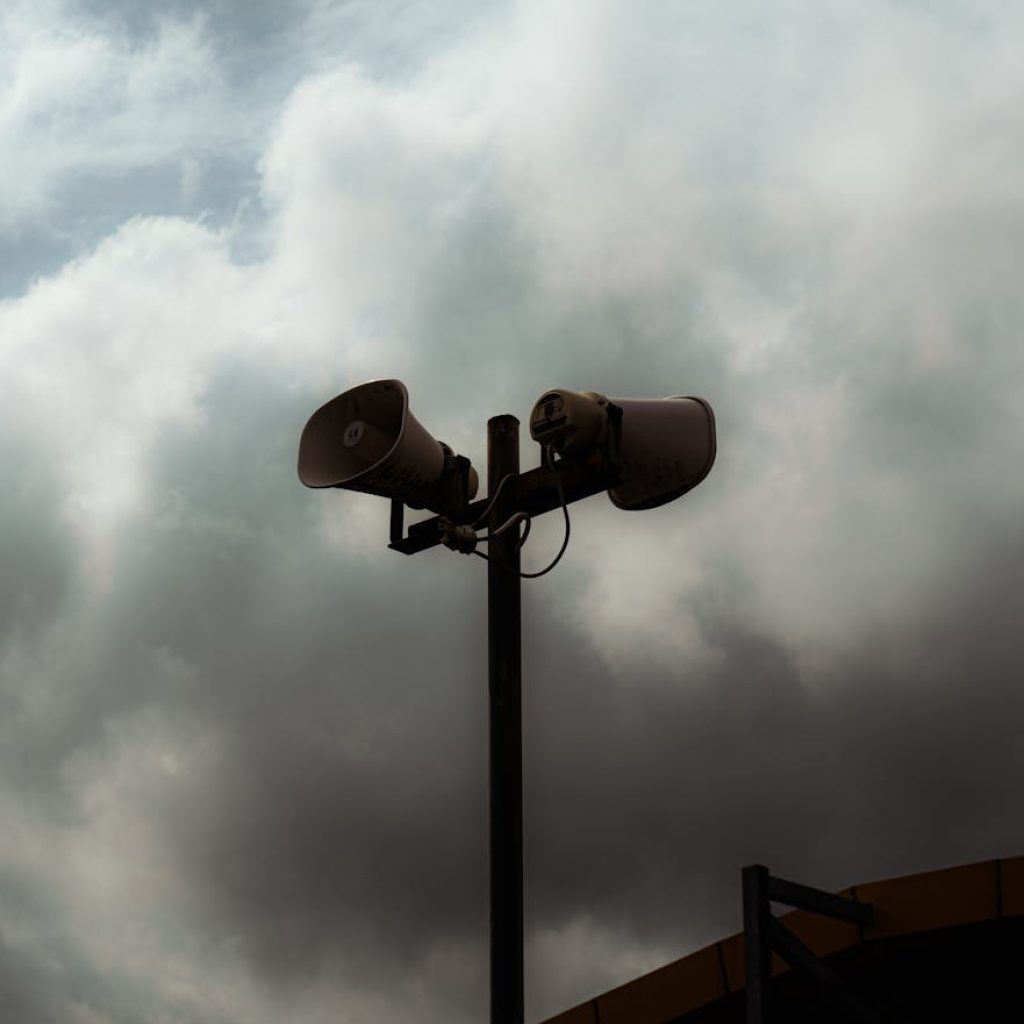AI: Revolutionizing the Music Industry in Unprecedented Ways
AI is transforming the music industry in ways we never imagined. From songwriting to production, distribution, and even how we consume music, technology is redefining the creative process and reshaping the business landscape. This article delves into the exciting, sometimes controversial, and always innovative ways AI is changing the music world, making it more accessible, personalized, and dynamic than ever before.
—
Creativity Redefined: How AI is Shaping Music Creation
At the heart of AI’s impact on music lies creativity—the very essence of the art form. Traditionally, music creation has been the domain of human artists, producers, and composers. But now, AI tools are empowering both professionals and amateurs alike to create music in ways that were previously unimaginable.
One of the most groundbreaking applications of AI in music is in composition. AI-powered tools like Amper Music and AIVA can generate original tracks in minutes, using machine learning algorithms to mimic the styles of famous composers or create entirely new sounds. These tools aren’t just for creating generic background music; they’re being used in film scores, video games, and even advertising campaigns. For instance, AIVA, an AI composer certified by the Sacem (Society of Authors, Composers, and Publishers of Music) in France, has composed music for multiple projects, challenging traditional notions of creativity.
tytoобретение не только полезно для профессионалов, но и демократизирует музыкальное создание. Amper Music, например, allows users to create custom tracks in minutes by selecting a mood, genre, and even specifying the instruments they want. For small businesses or content creators who can’t afford a professional composer, this is a game-changer.
But what does this mean for human artists? Rather than replacing them, AI is becoming a collaborator. Musicians are increasingly using AI tools to spark inspiration or overcome writer’s block. For example, some producers use AI to generate beats or chord progressions, which they then refine and personalize. This collaboration between humans and machines is giving rise to entirely new genres and sounds, blending the emotional depth of human creativity with the computational power of AI.
—
The AI Revolution in Music Production and Sound Design
While AI’s role in composition is transformative, its impact on music production and sound design is equally significant. For decades, music production has relied on human ears and expertise, but AI is now automating and enhancing many of those processes.
One of the most exciting advancements is in audio mastering, a process that ensures music sounds polished and optimized for different playback formats. Traditionally, mastering required a skilled engineer with expensive equipment. AI tools like Ozone by iZotope are changing the game by offering intelligent mastering algorithms that analyze and tweak audio tracks to professional standards. This democratizes access to high-quality sound, enabling independent artists to produce music that competes with major-label releases.
AI is also revolutionizing live performances and sound design. For example, AI-driven tools are being used to create immersive, real-time soundscapes for concerts and installations. Imagine attending a live show where the music adapts dynamically to the crowd’s energy—AI could make that a reality.
Moreover, AI-powered plugins like VocalSynth by iZotope are redefining vocal processing. These tools can alter pitch, tone, and even add creative effects in ways that were once the stuff of science fiction. Artists like Grimes and Billie Eilish have already experimented with AI-driven vocal effects, pushing the boundaries of what’s possible in music production.
—
AI and the Future of Music Distribution and Marketing
The impact of AI isn’t limited to creation and production; it’s also reshaping how music is distributed and marketed. The rise of streaming platforms like Spotify, Apple Music, and TikTok has created a data-driven ecosystem where algorithms determine which songs go viral. AI plays a central role in these systems, analyzing listening habits, predicting trends, and recommending tracks to users.
For artists, this presents both opportunities and challenges. On the one hand, AI-powered recommendations can help emerging artists reach global audiences without the need for traditional industry gatekeepers. On the other hand, the reliance on algorithms raises questions about bias and diversity in music discovery.
AI is also transforming music marketing. By analyzing vast amounts of data about fans’ preferences, AI tools can help artists and labels craft campaigns that resonate with specific audiences. For example, platforms like Next Big Sound use AI to identify up-and-coming artists and predict which songs are likely to chart. This data-driven approach is making the music industry more efficient and proactive than ever before.
—
The Ethical and Legal Landscape of AI in Music
As AI becomes more integral to the music industry, ethical and legal questions are emerging. Who owns the rights to a song composed by an AI? Can machines be considered co-creators, or are they simply tools like microphones or guitars? These questions are sparking heated debates among artists, producers, and legal experts.
In 2020, the US Copyright Office ruled that works created solely by AI cannot be copyrighted, asserting that creativity requires human authorship. However, this issue is far from settled. As AI-generated music becomes more sophisticated, it’s likely that courts and lawmakers will grapple with these questions for years to come.
Another ethical concern is the potential for AI to displace human jobs. While AI tools are empowering musicians in many ways, they could also reduce demand for certain roles, such as session musicians or audio engineers. However, many argue that AI will augment rather than replace human creativity, creating new opportunities in fields like AI training, sound design, and creative collaboration.
Ultimately, the ethical implications of AI in music highlight the need for collaboration between the tech and music industries. By working together, we can ensure that AI enhances creativity and opportunity without undermining the value of human artistry.
—
Cultural Shifts: The Global Reach of AI in Music
AI is also driving cultural shifts in the music industry, breaking down barriers between genres and geographies. By analyzing global music trends and listener preferences, AI-powered platforms are introducing audiences to artists and styles they might never have discovered otherwise.
For example, platforms like SoundCloud and TikTok are using AI to promote underground artists from around the world, creating a more diverse and connected global music scene. This democratization of music is challenging the dominance of major labels and empowering independent artists to build loyal fanbases.
AI is also enabling cross-cultural collaborations that were once impossible. Imagine a producer in Tokyo collaborating with an AI tool trained on African drum patterns and Latin jazz. The result could be a genre-defying sound that blends traditions from across the globe.
—
Looking Ahead: The Future of AI in Music
The integration of AI into the music industry is still in its early stages, and there’s no doubt that the next decade will bring even more exciting innovations. From AI-powered instruments and virtual concerts to personalized music therapy and adaptive soundtracks for virtual reality experiences, the possibilities are endless.
One of the most promising areas of development is in personalized music. AI tools like Endel are already creating adaptive music that responds to your mood, activity, and environment. Imagine a world where your music listens to you as much as you listen to it—a world where every song is a unique experience tailored to your life.
Another trend to watch is the rise of AI-driven virtual artists. From digital avatars to fully AI-generated performers, these virtual acts are challenging our notion of what it means to be an artist. While they’re not yet mainstream, they represent an exciting frontier in music and entertainment.
In conclusion, AI is more than just a tool for the music industry—it’s a partner, a collaborator, and a catalyst for innovation. While there are challenges to navigate, the potential of AI to open up new creative possibilities and connect music lovers around the world is undeniable.
As we look to the future, one thing is clear: AI is here to stay, and it’s time to embrace the possibilities. Whether you’re a musician, a music lover, or simply curious about the future of creativity, the transformation of the music industry by AI is a story worth following.
Key Takeaways:
– AI is reshaping every stage of the music creation process, from composition to production.
– AI tools are democratizing access to high-quality music creation and distribution.
– Ethical and legal questions remain, but collaboration between humans and machines is key to maximizing AI’s potential.
– The future of music is more connected, diverse, and personalized than ever before.
Explore more stories about technology, innovation, and creativity on BeNewsMag.com.
Until next time, keep exploring,creating, and embracing the possibilities of our connected world. 🎶
—
About the Author: Alex Smith is a tech and culture journalist with a passion for exploring how innovation shapes our lives. Follow him on BeNewsMag.com for more insights into the intersection of technology and creativity.

